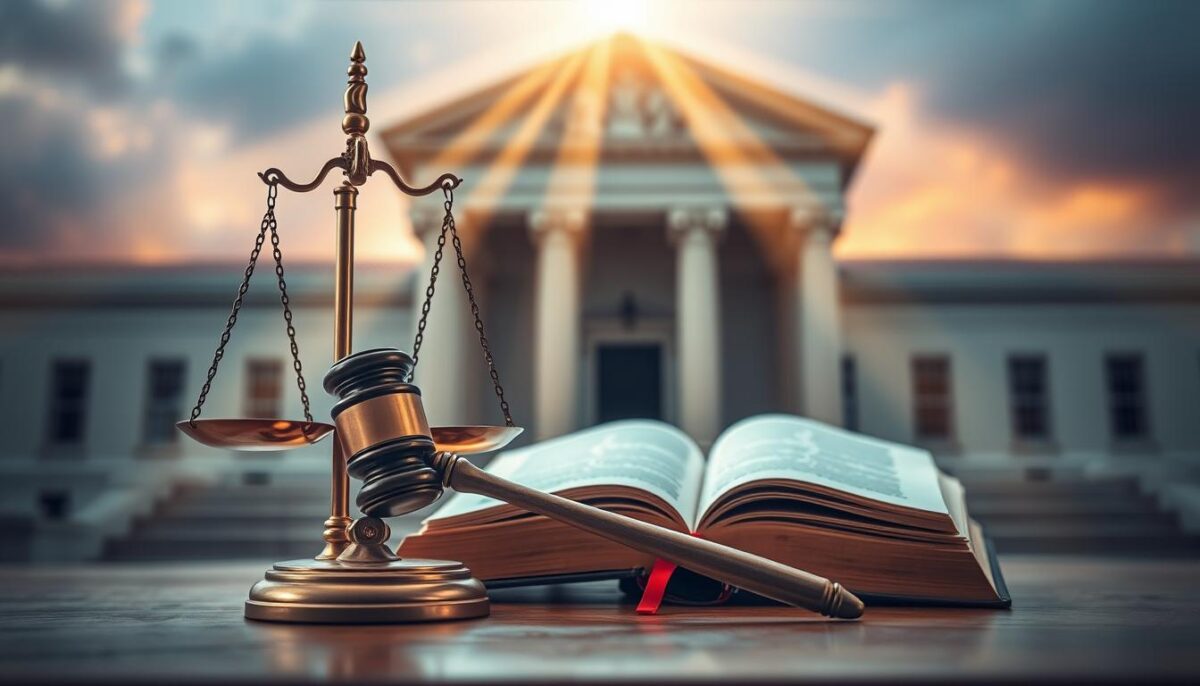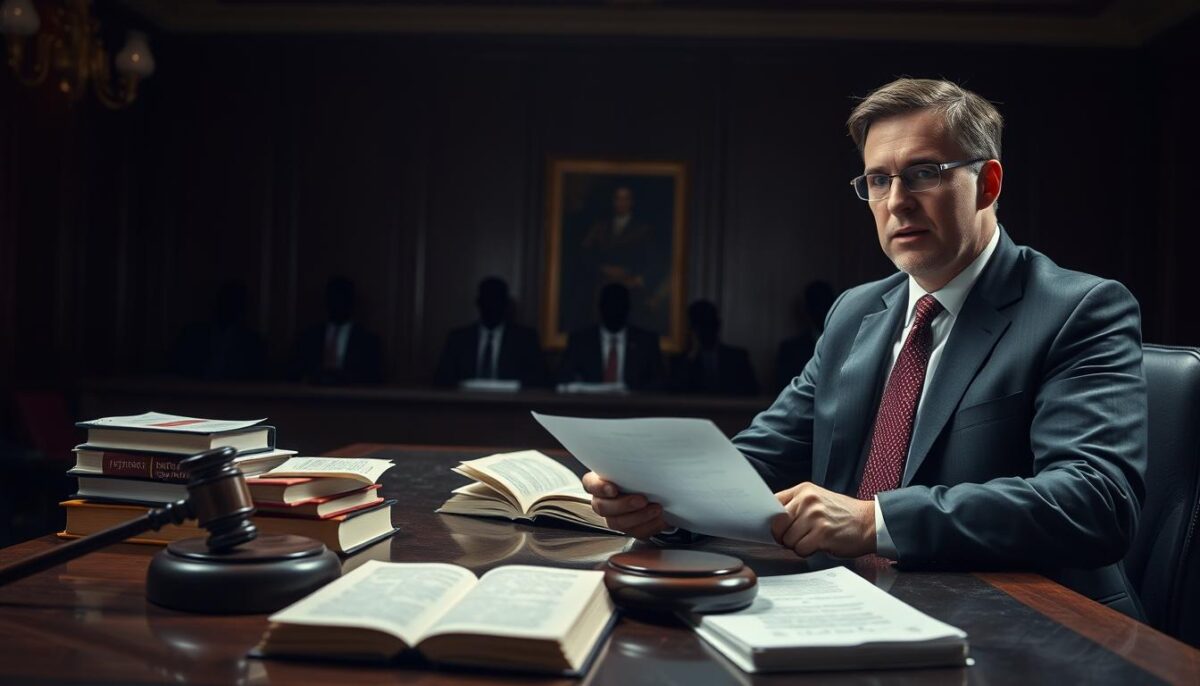As someone deeply invested in the field of criminal law, I understand the pivotal role that a skilled criminal defense lawyer plays in the lives of individuals navigating the complexities of the justice system. This article aims to provide you with valuable insights and tips from seasoned criminal defense attorneys, focusing on the importance of having expert legal guidance when facing criminal charges. A proficient criminal defense attorney not only shapes the defense strategy but also ensures that every facet of the case is addressed, ultimately working towards the most favorable outcome possible. Whether you are dealing with serious allegations such as homicide or more nuanced issues like DUI, understanding the nuances of criminal defense services can significantly impact the trajectory of your case.
The Role of a Criminal Defense Lawyer
A criminal defense lawyer plays an essential role in the legal process, primarily by providing legal representation to individuals facing criminal charges. Their primary responsibility is to ensure that clients receive a fair trial and that all constitutional rights are upheld. Given that about 80% of defendants in the criminal justice system are indigent and rely on court-appointed attorneys, the significance of these professionals cannot be overstated.
These lawyers guide clients through the complexities of the legal system, helping them understand their rights, potential charges, and the implications of each step they take. A strong defense strategy often hinges on extensive research and investigation, as criminal defense attorneys locate witnesses and gather evidence that can sway the outcome of a case. It’s crucial for these lawyers to challenge any evidence that may result from wrongful identification or false confessions, which can lead to wrongful convictions.
The negotiating power of a criminal defense lawyer is particularly vital in today’s justice system, where approximately 95% of all criminal cases are resolved through plea agreements. Given that over 90% of criminal cases in the U.S. result in plea bargains, effective negotiation skills can significantly alter a defendant’s fate. For instance, many defendants, unaware of their options, might benefit from negotiating reduced charges or alternative sentencing through a plea deal.
While it’s often seen that most criminal trials end in convictions—97%, according to surveys—having an attorney who understands the local court system and the intricacies of law can influence outcomes for the better. It should be noted that criminal defense lawyers are responsible for filing various motions, such as bond motions and motions to suppress evidence, which are critical in shaping the trajectory of a case.
Lastly, the need for skilled legal representation is underscored by the potential long-term consequences of a criminal conviction. Such consequences can limit job opportunities, restrict housing options, and affect rights such as voting. Engaging a criminal defense lawyer early in the process can safeguard against these repercussions. For further insights on this subject, you may refer to understanding indictment and its implications.
Essential Qualities of an Effective Criminal Defense Attorney
When searching for an effective criminal defense attorney, several key qualities must be considered. An experienced attorney should possess strong communication skills, allowing them to explain complex legal concepts clearly to clients. These skills also enhance the attorney’s ability to negotiate effectively with prosecutors, striving for favorable outcomes.
Empathy is another essential quality. Clients facing criminal charges often experience high levels of stress and anxiety. An attorney who is compassionate can provide emotional support, fostering a trusting relationship. This connection is vital for a productive legal partnership.
Analytical abilities play a fundamental role in a criminal defense attorney’s work. By thoroughly reviewing evidence and case documents, an attorney can identify weaknesses in the prosecution’s case. This attention to detail can make a significant difference in court outcomes. Additionally, the ability to anticipate and counter prosecution strategies stems from rigorous research and analysis.
The dynamic nature of criminal defense services requires attorneys to stay adaptable. Whether negotiating plea deals or developing case strategies, flexibility ensures that attorneys are prepared for any situation. Decision-making skills are crucial as well; clients depend on their attorney to provide sound legal advice tailored to their specific circumstances.
Finally, a well-connected attorney understands the importance of networking within the criminal justice system. Relationships with judges, prosecutors, and other legal professionals can facilitate negotiations and enhance a lawyer’s effectiveness. An effective criminal defense attorney must balance technical expertise with interpersonal skills to navigate the complexities of criminal law successfully.
| Quality | Description |
|---|---|
| Communication Skills | Ability to convey legal information clearly and negotiate effectively. |
| Empathy | Providing emotional support and establishing trust with clients. |
| Analytical Abilities | Reviewing evidence and identifying weaknesses in the prosecution’s arguments. |
| Decision-Making Skills | Offering sound legal advice based on thorough understanding of cases. |
| Networking | Building relationships with key players in the legal system to facilitate negotiations. |
Understanding Legal Procedures in Criminal Defense
Navigating the complex landscape of legal procedures in criminal defense demands a solid understanding of the criminal justice system. Each step in this journey, from arrest to trial, involves important legal terms and courtroom etiquette that can significantly influence trial outcomes. I ensure that my clients grasp these intricacies so they can actively participate in their defense.
Familiarity with local court rules is essential. Each jurisdiction has specific requirements and practices that affect how cases are handled. I prioritize staying updated on these regulations to provide the most effective legal representation. For instance, I assist clients with everything from drafting motions to preparing for hearings, ensuring they understand what each legal procedure entails.
Understanding courtroom etiquette is as crucial as knowing the legal procedures. This encompasses proper behavior during proceedings, such as addressing the judge appropriately and understanding when to speak or remain silent. These behaviors can impact perception and influence decisions made by juries and judges.
| Legal Procedure | Description | Impact on Case |
|---|---|---|
| Arraignment | The initial court appearance where charges are read. | Sets the tone for the defense strategy and timeline. |
| Pre-trial Motions | Requests filed to decide specific legal issues before the trial. | Can dismiss charges or suppress evidence, streamlining the trial. |
| Trial | The formal examination of evidence before a judge or jury. | Critical phase where the burden of proof lies with the prosecution. |
| Sentencing | Post-trial determination of punishment. | Allows for advocacy for leniency on behalf of the defendant. |
In conclusion, a robust understanding of legal procedures coupled with proper courtroom etiquette not only empowers the defendant but also strengthens the overall defense strategy. I strive to cultivate this knowledge in my clients, ensuring they are informed participants in their case and enhancing our ability to secure favorable outcomes.
Your Rights in the Criminal Justice System
Understanding one’s rights in criminal justice is vital when navigating the complexities of the legal system. Every individual, regardless of the nature of accusations, has fundamental rights that must be upheld throughout the legal process, including the right to legal representation. This right ensures that those facing charges have the necessary support to comprehend their situation, defend themselves effectively, and avoid potential pitfalls that could arise from a lack of guidance.
Defendant rights encompass many protections, one of the most critical being the right to a fair trial. This right guarantees that all individuals are treated equally under the law and that proceedings are conducted transparently. The complexity of the laws governing criminal cases necessitates having a competent attorney who can advocate vigorously on behalf of clients.

A skilled criminal defense lawyer serves as a vital resource, ensuring that defendants are well-informed about their legal rights. My role includes explaining how the system operates, what to expect during various stages of the process, and how to respond to interactions with law enforcement. This guidance is crucial, particularly in situations where individuals may inadvertently self-incriminate due to a lack of knowledge regarding their rights.
In Florida, defendants are entitled to be released on bail, depending on the severity of the charges. It’s essential to understand the terms surrounding bail, as excessive bail can violate rights set forth in the Eighth Amendment. The importance of timeliness cannot be overstated—engaging legal representation early can significantly impact the outcome. By collaborating with knowledgeable attorneys, one can increase the likelihood of charges being reduced or even dismissed before reaching trial.
Additionally, it is important to recognize that after acquittal or dismissal of charges, the principle of double jeopardy protects against being retried for the same crime, further emphasizing the intricate nature of legal rights. The involvement of experienced counsel not only helps navigate these complex waters but also fosters a sense of security amidst the stress and challenges of facing criminal charges.
For anyone facing criminal charges, understanding and asserting these rights is more than a formality; it is crucial for protecting one’s future. By having a strong ally in a defense lawyer, individuals can ensure their rights in the criminal justice system are fully recognized and respected.
For further insights into the role of a criminal defense attorney, visit this page.
Choosing the Right Criminal Defense Lawyer Near You
Finding the ideal attorney is crucial when facing criminal charges. My journey in choosing a criminal defense lawyer has revealed how essential local knowledge is for navigating state-specific laws. Local attorneys often have connections that help in understanding the nuances of the legal landscape, impacting the case’s outcome.
The experience and reputation of a lawyer cannot be overstated. Board-certified criminal defense attorneys, regarded as the “best of the best,” typically have a successful track record. Their specialization in criminal defense law and extensive experience in jury trials often leads to a more aggressive defense. They are well-acquainted with judges and prosecutors, which can play a significant role in potentially favorable outcomes.
One must not overlook the heavy burdens faced by public defenders. Often overwhelmed with caseloads, these attorneys may lack the time needed to dedicate to each case, limiting the personal attention clients receive. This makes it imperative to find a criminal defense law firm with strong local ties who can prioritize my case appropriately.
Price should not be the only consideration when selecting an attorney. While it’s tempting to opt for cost-effective options, lower fees can sometimes signal less experience. Conversely, higher rates do not guarantee superior representation. Taking the time to research options can lead to a better-informed choice.
Prompt action is equally important. The urgency of securing legal representation cannot be understated. An attorney who readily responds to inquiries and arranges meetings quickly demonstrates dedication to their clients’ needs. Personal consultations are invaluable for assessing comfort levels, rapport, and empathy that play significant roles in the attorney-client relationship.
Consider the attorney’s track record of success as an indicator of their ability to navigate the complexities of the criminal justice system. Notably, approximately 90% of crimes do not go to trial but result in plea deals, making courtroom experience a critical factor. A successful attorney often has over 70% of their cases resolved positively, showcasing the importance of experience in real-life situations.
The following table outlines key criteria to consider when choosing a criminal defense lawyer:
| Criteria | Description | Importance Level |
|---|---|---|
| Experience | Board-certified attorneys with extensive jury trial experience | High |
| Local Knowledge | Attorney’s familiarity with local laws and court systems | Essential |
| Reputation | Strong standing within the community and among legal professionals | Critical |
| Cost | Assessing fee structures while considering quality of service | Moderate |
| Response Time | Quick responses to inquiries and availability for meetings | Very High |
| Track Record | Documented history of successful case outcomes | High |
Investing time and effort into finding the right legal representation is not just prudent; it significantly influences my future. A well-chosen attorney can make all the difference in navigating the criminal justice system successfully.
Strategies Employed by Criminal Defense Lawyers
Criminal defense strategies are essential in navigating the complexities of the legal system. Among the variety of approaches, defense attorneys commonly utilize plea bargaining and self-defense arguments to advocate for their clients effectively. Each strategy requires a nuanced understanding of the law and a diligent evaluation of the specific circumstances of each case.
Plea Bargaining Techniques
Plea bargaining serves as a critical tool for defense attorneys striving to negotiate reduced charges or lesser sentences for their clients. This process often enables defendants to plead guilty to a lesser offense while avoiding the uncertainties and potential severity of a trial. Statistical evidence shows that a significant portion of criminal cases, particularly in Palm Beach, are resolved through plea bargains rather than proceeding to trial. Defense attorneys must possess strong negotiation skills to achieve favorable outcomes during these discussions.
Self-Defense and Other Common Defense Strategies
In addition to plea bargaining, self-defense remains a prevalent argument within criminal defense strategies. This legal doctrine asserts that individuals have the right to protect themselves from imminent harm, leading to arguments surrounding the justification of certain actions during confrontations. Other defense strategies may include claims of insanity or duress, each necessitating a precise understanding of legal definitions and requirements. Defense attorneys often concentrate on discrediting eyewitness testimony and challenging confessions, indicating the importance of a meticulous review of evidence against clients. By highlighting the burden of proof required for a conviction, attorneys reinforce the idea that the prosecution holds a heavy responsibility to establish guilt beyond a reasonable doubt.

| Defense Strategy | Description | Key Considerations |
|---|---|---|
| Plea Bargaining | Negotiating a lesser charge or sentence. | Requires strong negotiation skills and can lead to quicker resolutions. |
| Self-Defense | Arguing justification for actions taken to protect oneself. | Must prove imminent threat and proportional response. |
| Insanity Defense | Claiming lack of mental capacity during the crime. | Requires psychological evaluation and thorough documentation. |
| Challenging Confessions | Investigating the validity of police confessions. | Important for ensuring client rights and addressing potential coercion. |
| Discrediting Eyewitness Testimony | Questioning the reliability of witness accounts. | Focus on inconsistencies and potential biases of witnesses. |
The Importance of Evidence Analysis
In the realm of criminal defense, the importance of thorough evidence analysis cannot be overstated. A comprehensive understanding of physical evidence and eyewitness testimony is crucial for building a solid defense strategy. By meticulously evaluating every piece of information, defense attorneys can identify inconsistencies and weaknesses in the prosecution’s case. This process serves not just to protect the rights of the accused, but also to seek the best possible outcomes based on the facts at hand.
Assessing Physical Evidence
Physical evidence plays a pivotal role in the criminal justice system, encompassing DNA, fingerprints, ballistic data, and more. Each piece of evidence must undergo rigorous analysis to ascertain its relevance and reliability. For instance, a defense attorney will work to verify the integrity of DNA evidence—confirming the process of collection and testing—and challenge any irregularities. By scrutinizing how evidence is gathered and interpreted, I can effectively weaken the prosecution’s assertions, providing a critical advantage in court.
Evaluating Eyewitness Testimony
Eyewitness testimony often poses challenges due to the potential for inaccuracies. Human memory can be flawed, influenced by various factors such as stress or suggestion. In my practice, I diligently assess each statement, looking for biases or inconsistencies that could undermine the credibility of the witness. Understanding the limitations of eyewitness accounts allows me to present a compelling argument that questions their reliability. This crucial aspect of evidence analysis not only aids in uncovering the truth but also fortifies the defense against possibly unfounded claims.
Engaging Witnesses and Gathering Testimonies
Engaging witnesses and gathering testimonies form a cornerstone of a successful defense strategy. As a defense attorney, I understand the complexities involved in directly obtaining witness statements. Defendants often face challenges in reaching out to witnesses, making it crucial for attorneys like myself to leverage our skills and insights to acquire vital information.
The process of gathering testimonies begins with thorough interviews. Speaking with witnesses who have knowledge of the incident can provide significant clarity about the events leading up to and following the alleged offense. Each piece of information can potentially shift the narrative of the case. Understanding the nuances of each testimony is critical for crafting effective arguments during trial proceedings.
One important aspect is the witness credibility. Each witness may possess varying levels of reliability based on their perspective and involvement in the case. As part of my preparation, I analyze witness backgrounds and discern any biases that could skew their testimony. This thorough evaluation aids in determining which testimonies will strengthen the defense, and which ones may require additional scrutiny.
To further support our case, engaging expert witnesses can make a significant difference. Their specialized knowledge plays a vital role in clarifying complex topics, debunking myths, and countering the prosecution’s arguments. Examples include:
| Type of Expert | Role in Testimony | Potential Impact |
|---|---|---|
| Forensic Experts | Analyze physical evidence like DNA, fingerprints, and ballistics | Can provide strong evidence to counter prosecution claims |
| Medical Experts | Testify on injuries, medical conditions, and mental health issues | Clarifies the circumstances surrounding the incident |
| Expert Witnesses in Other Fields | Offer insights on topics such as DNA testing and fingerprint interpretation | Can clarify complex concepts for the jury |
Proper preparation of these experts is essential. This includes mock examinations and rehearsals to ensure they communicate their findings effectively to the jury. Effective testimony from expert witnesses can be the difference between winning and losing a case.
In summary, the role of gathering testimonies and assessing witness credibility cannot be overstated. By conducting comprehensive witness interviews, analyzing evidence, and utilizing expert testimonies, I can build a robust defense narrative that addresses the specific challenges faced in each case.

The Emotional Support Provided by Criminal Defense Attorneys
Facing criminal charges can be a harrowing experience filled with anxiety and uncertainty. Defendants often grapple with a barrage of emotions, including fear, confusion, and isolation. In this critical moment, the role of a criminal defense attorney extends beyond legal expertise; it encompasses a vital dimension of emotional support. Establishing strong client relationships is fundamental to fostering a sense of security and trust.
Effective communication is key in providing emotional support. A compassionate criminal defense attorney will take the time to listen to their clients, helping them to process their feelings and navigate the complexities of their situations. By validating their clients’ emotions, attorneys can build rapport and create an environment where defendants feel comfortable discussing their fears and concerns.
Moreover, the attorney-client relationship can significantly influence the defendant’s experience throughout the legal process. When clients feel understood and supported, they are more likely to engage actively in their defense strategies, fostering a collaborative approach that can enhance the overall effectiveness of their case. Through guidance and encouragement, attorneys empower clients to make informed decisions regarding their legal options.
In this context, the emotional support provided by criminal defense attorneys becomes invaluable not only for navigating legal hurdles but also for maintaining mental well-being. Attorneys at firms like Gross McGinley, LLP emphasize the importance of compassionate representation, ensuring that the individuals they defend are treated with respect and understanding throughout the arduous journey of facing criminal charges.
| Key Aspects of Emotional Support | Importance |
|---|---|
| Effective Communication | Builds trust and rapport, allowing clients to express their feelings. |
| Validation of Emotions | Helps clients feel acknowledged and understood during stressful times. |
| Empowering Decision-Making | Enables clients to make informed choices about their defense. |
| Collaborative Approach | Strengthens overall defense strategies and increases client engagement. |
| Compassionate Representation | Ensures clients are treated with dignity and respect throughout the process. |
In summary, the emotional support offered by criminal defense attorneys plays a critical role in navigating the complexities of the criminal justice system. By prioritizing client relationships and fostering an environment of understanding, these professionals not only advocate for their clients’ legal rights but also safeguard their emotional well-being.
Criminal Defense Services for Unique Cases
Unique criminal cases often present distinct challenges that require specialized defense services. For instance, white-collar crimes like fraud or embezzlement necessitate a nuanced understanding of financial regulations and the complexities involved in such offenses. Similarly, juvenile offenses and domestic violence cases demand a careful approach to uphold the rights of the accused while addressing the sensitivities inherent in these circumstances. Engaging a capable criminal defense law firm with expertise in these specialized areas can make a significant difference in the outcome of the case.
Throughout my experience, I have noticed that the success rate of navigating these particular situations is influenced greatly by how well the defense attorney understands the intricacies of the law. For example, in recent OVI charge dismissals in various municipal courts, the skilled intervention of defense attorneys played a crucial role in achieving favorable outcomes, showcasing the importance of strategic negotiation and evidence analysis. Such tailored strategies often lead to reduced charges or even the complete dismissal of cases depending on the specific circumstances surrounding each unique criminal case.
Ultimately, selecting a criminal defense law firm that possesses a strong track record in handling specialized cases is essential. By prioritizing legal representation with the right expertise, clients can ensure that they have robust support throughout the legal process. This way, the defense attorneys can provide essential services that not only protect their clients’ rights but also aim for the best possible verdict. For a comprehensive review of how different cases can differ in definition and impact, feel free to explore this detailed overview on legal differences that may arise in unique circumstances.

